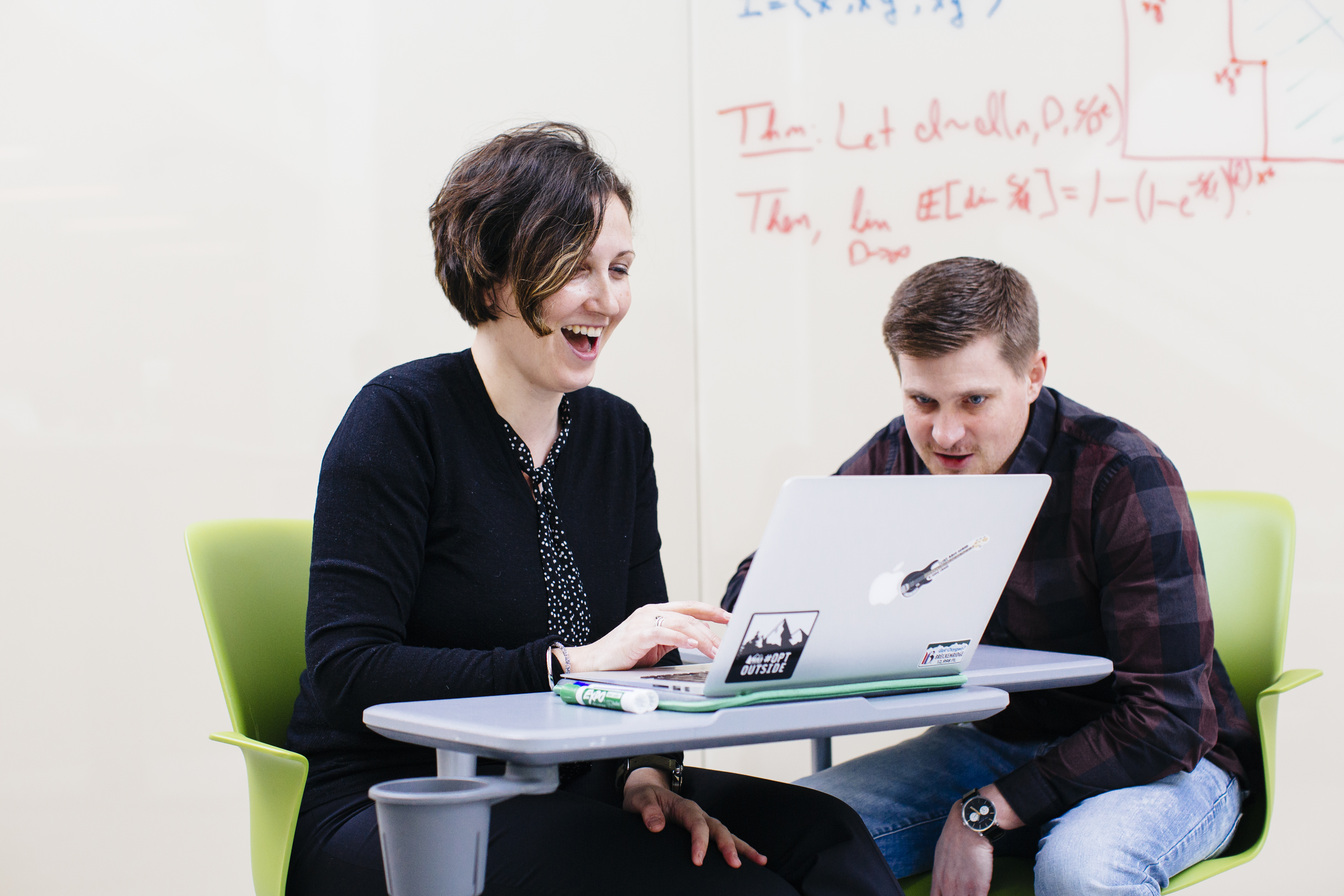Summary
Algebra ⟶ non-linear statistics
I build statistical models for discrete relational data that capture more complex behavior than traditional models, study them through the algebrogeometric lens, prove their interpretability in practice, and develop scalable model/data fit testing methodologies using a blend of combinatorial, algebraic, probabilistic, and Bayesian algorithms.
Randomness ⟶ non-linear algebra
I study randomized algorithm approaches to computational algebra problems whose expected runtimes are much lower then the well-known worst-case complexity bounds, develop probabilistic models to study average and extreme behavior of algebraic objects, and use machine learning to predict and improve behavior of algebraic computations.
Algebraic statistics for network models
- Non-asymptotic goodness-of-fit tests based on Markov bases;
- Existence and complexity of MLE;
- Dynamic combinatorially-inspired data-oriented algorithms for model fitting;
- Application to (large) sparse network data.
Sponsors:
DARPA
FA9550-12-1-0392 (2012-2013), AFOSR FA9550-14-1-0141 (2014-2017).
Statistical models in psychology
- Computational challenges in occupational health psychology:
using statistics to model dynamic worker well-being.
Sponsors:
2018 CISC
seed grant with
Mahima
Saxena, IIT Psychology, and
Lulu Kang, IIT Applied Math.
Randomness and learning for non-linear algebra
- Stochastic non-linear algebra;
- Solving systems of multivariate equations;
- Fast randomized algorithms for large structured systems;
- Randomized structures in algebra with applicaitons.
Sponsors:
NSF DMS-1522662 (2015-2019).
Here are my Google Scholar and ResearchGate profiles, though the latter seems outdated.

I actively mentor and involve
students in my research. If you are interested, check out these
research summary slides from April 2017.